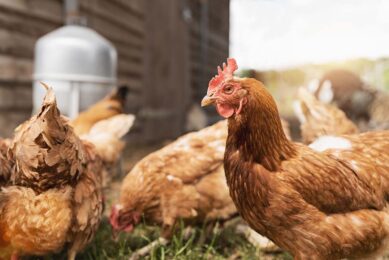New food safety technology for eggs

Agricultural Research Service (ARS) scientists have filed a patent on technology that can protect pasteurized liquid eggs from food safety threats.
These threats include both naturally-occurring spoilage bacteria and pathogens.
The new technology was developed by Sudarsan Mukhopadhyay, Peggy Tomasula and John Luchansky, researchers at the ARS Eastern Regional Research Centre (ERRC) in Wyndmoor, Pa.
Current pasteurization technology removes heat-sensitive pathogens, but some heat-resistant spoilage microorganisms can survive. Consumers can avoid illness by properly preparing and cooking eggs before consumption, but the researchers have found that new technology can compensate for the shortcomings of thermal pasteurization.
CMF technology used on eggs
The technology, called “crossflow microfiltration membrane separation” (CMF), removes more pathogens than thermal pasteurization. This is done without affecting the eggs’ ability to foam, coagulate and emulsify, meaning that CMF-treated eggs could be safely substituted for pasteurized eggs in products where those characteristics are desired.
A pilot-scale study
In a pilot-scale study, CMF was shown to remove about 99.9999% of inoculated Salmonella enteritidis from unpasteurized liquid egg whites. The technology can also be used to remove Bacillus anthracis spores from egg whites.
Although effective in its own right, CMF works best when used as an accompaniment to pasteurization, not a replacement for it. Combining the 2 processes significantly reduces the pathogen load.
Read more about this research in the May/June 2009 issue of Agricultural Research magazine, click here.
Related link:
Agricultural Research Service (ARS)
Join 31,000+ subscribers
Subscribe to our newsletter to stay updated about all the need-to-know content in the poultry sector, three times a week. Beheer
Beheer








 WP Admin
WP Admin  Bewerk bericht
Bewerk bericht